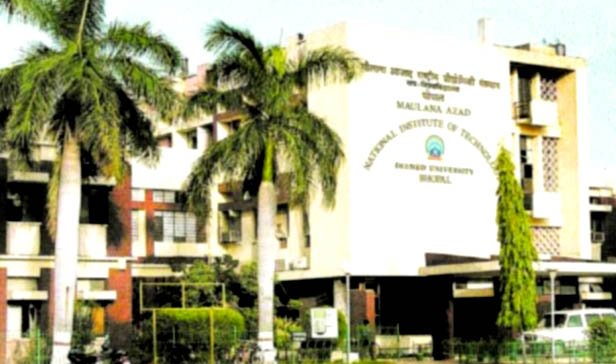Bhopal: The Maulana Azad National Institute of Technology (MANIT) is set to host a short-term training program focused on the theme of “Air Pollution: Monitoring, Modeling, and Decision Making.” This program has been designed to align with the objectives of the National Clean Air Program (NCAP) and aims to enhance the capacity for conducting PMx chemical speciation and source apportionment studies, essential for informed decision-making in all non-attainment cities across India.
Having a foundational understanding of chemical composition and the methods for chemical speciation is crucial for identifying pollution sources. The training program will feature a well-rounded approach, combining theoretical classroom instruction with hands-on operational training. Its primary emphasis will be on techniques related to chemical speciation and source apportionment of Particulate Matter. Distinguished scientists will provide comprehensive insights into the significance of specific chemical components and guide participants through a detailed step-by-step analysis using instrumentation and analytical techniques. Through practical sessions, attendees will gain a solid grasp of the methods involved.
This training initiative is intended for educators and students, offering them the opportunity to explore the subject of air pollution both within the classroom and at home. Furthermore, this short-term training program on air pollution intends to facilitate the exchange of information on new developments in this field.
The overarching objectives of the training program are: Providing foundational knowledge about air pollution, non-attainment sources, and their impacts on the environment, human health, and other organisms.
Developing GIS-based emission inventories, frameworks, applications, and practical implications.
Imparting conceptual understanding of the methods for chemical speciation and source apportionment of particulate matter, dispersion models, receptor models, and other pertinent models.
Offering hands-on training in the use of necessary instrumentation and analytical techniques for chemical speciation and source apportionment of aerosols.
Disseminating knowledge on post-analysis data interpretation, multivariate statistical tools, and the analysis of satellite and meteorological data, as well as mitigation measures and strategic plans for air pollution control.
The program will be facilitated by experienced professionals from prestigious institutions like IITs, NITs, and industry experts in relevant fields. Registration forms are available for individuals interested in participating in this valuable training program.











